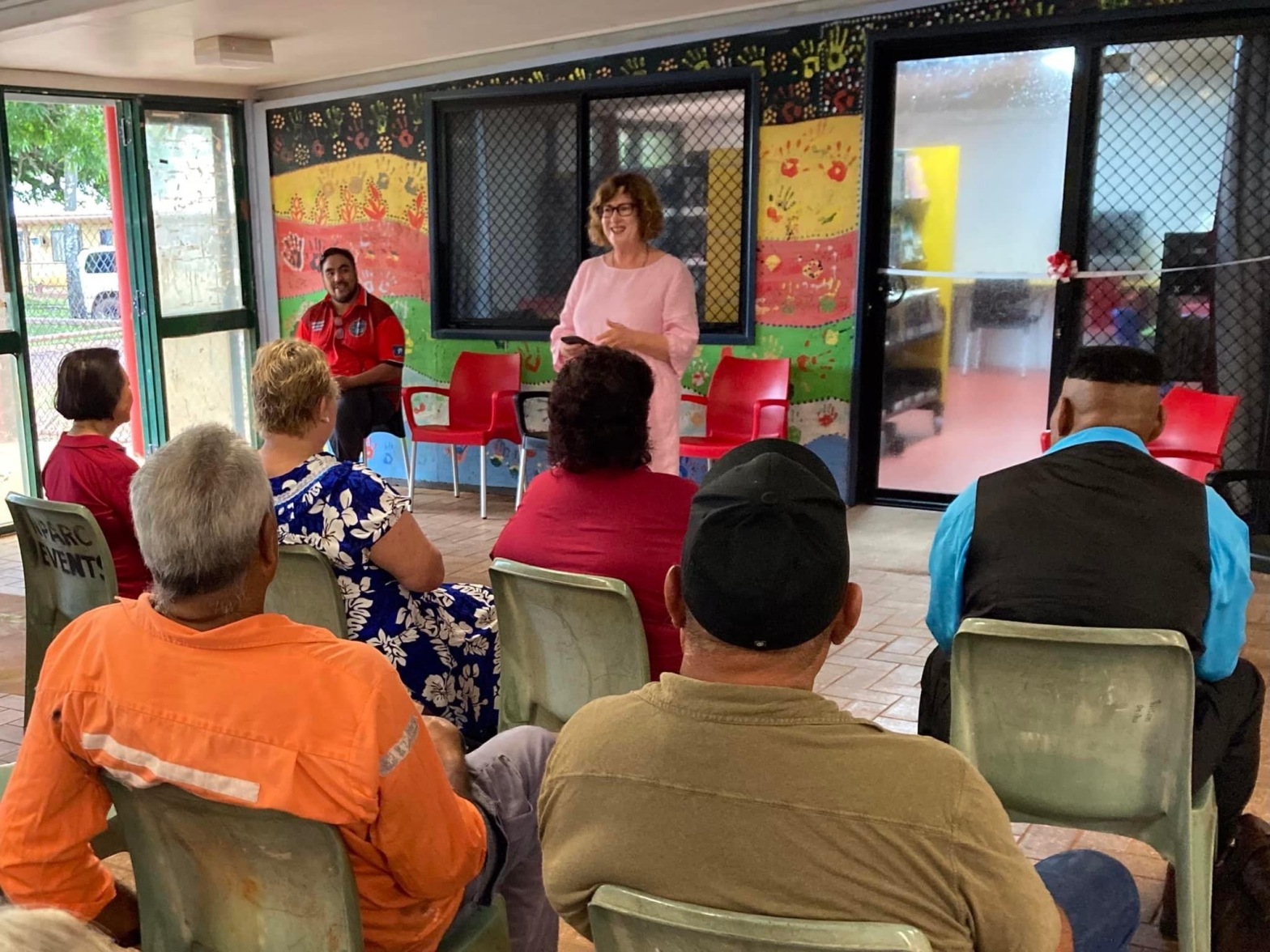On Saturday 23 April 2022, I was privileged to attend the official reopening of the Injinoo Indigenous Knowledge Centre (IKC). Injinoo is the fifth IKC to be opened by the Northern Peninsula Area Regional Council (NPARC), demonstrating NPARC’s commitment to providing library services to one of Queensland’s most remote communities. Unfortunately, the first Injinoo IKC had to be closed in 2015 after being flooded. So, there was great excitement within the community about this important service once again being available to them.
Queensland now has 25 IKCs, operated by Indigenous Councils in partnership with the State Library of Queensland. These centres not only provide access to traditional library services, but they are also a vital hub for the communities they serve. IKCs facilitate lifelong learning, improve social wellbeing, and help people of all ages to develop work and life skills. Importantly, they also provide a place to capture and preserve local history, language and culture.
Whilst attending official opening of the Injinoo IKC, I was able to advise the community that the aspiration for a network of IKCs across Queensland was first proposed in 2001 in the State Library’s Future directions: smart libraries build smart communities policy document. Future directions made a commitment to improve library and information services to Indigenous people and communities in Queensland. Significantly, it also involved establishing libraries in all Indigenous communities and developing appropriate collections throughout the public library network.
Smart Libraries Build Smart Communities—Future Directions of the State Library of Queensland
Coincidentally, Saturday’s event was 20 years to the day since the first IKC opened at Lockhart River in 2002. Today’s strong network of IKCs stretch from the Torres Strait and Cape York regions in north Queensland to Cherbourg in the south. Each IKC seeks to present services and events that are deeply local.
Across the last decade, State Library has also made a strong commitment to language revitalisation—documenting, preserving, and making accessible the traditional languages of Queensland.
Aboriginal and Torres Strait Islander languages—State Library of Queensland
Later this week, State Library officers will deliver language workshops to the Northern Peninsula Area communities. These workshops have several key objectives:
• to raise awareness of local/regional languages in each community
• to introduce community members to language resources and materials
• to provide community members with basic training and skills in researching and using languages
• to generate action plans for language revival in the region.
I very much valued seeing first-hand the excitement within the community about once again having their own Indigenous Knowledge Centre and also the opportunity to participate in local/regional language revitalisation programs.




